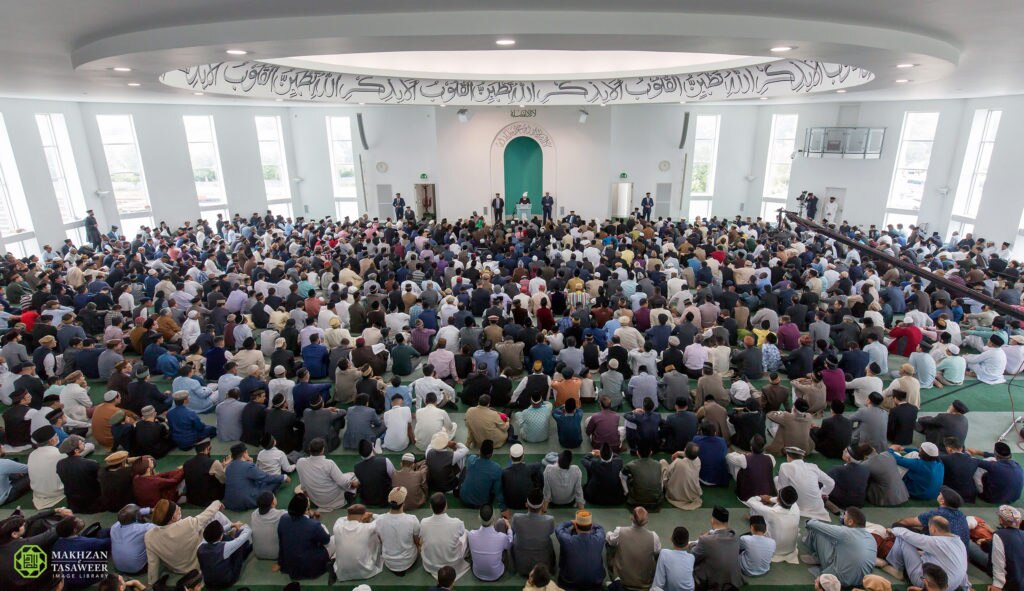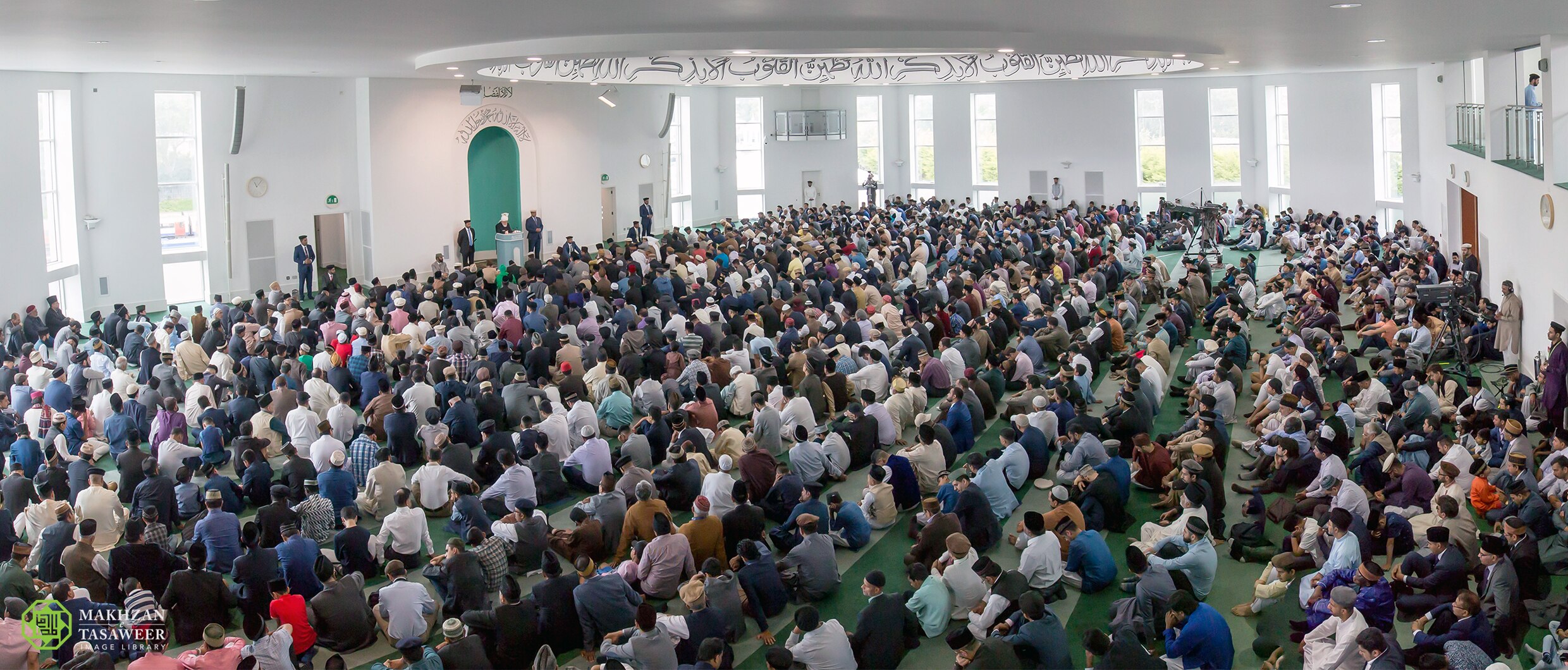
Head of Ahmadiyya Muslim Community Delivers Eid Sermon in London
Hazrat Mirza Masroor Ahmad says Eid should serve to remind us of our efforts to increase in goodness
The World Head of the Ahmadiyya Muslim Community, the Fifth Khalifa (Caliph), His Holiness, Hazrat Mirza Masroor Ahmad, delivered the Eid-ul-Fitr sermon on 16th June 2018 from the Baitul Futuh Mosque in London.

During the address, His Holiness spoke of the importance of remembering the less fortunate and needy during the celebrations of Eid and advised Ahmadi Muslims to continue the good deeds they had focused upon during the month of Ramadan, making them a constant part of their lives.
Hazrat Mirza Masroor Ahmad began his address and stated:
“The month of fasting has ended. It was a month in which we focused upon our voluntary prayers. However we must now seek to continue fulfilling the rights owed to God and the rights owed to the creation of God. We must continue offering the voluntary prayers and promptly offering our obligatory prayers. If we paid attention during Ramadan towards controlling our ego and desires, then we must continue this practice. If we became compassionate towards the creation of God, then we must maintain this compassion and seek to improve in our good deeds.”
Hazrat Mirza Masroor Ahmad continued:
“If we continue the good deeds we practiced during Ramadan into the rest of our lives, in that case we will truly be celebrating Eid and the joy we feel today will encompass the rest of our coming year. This is the true purpose of Eid. Otherwise merely dressing up, having nice food and meeting with friends and making plans for the day are meaningless without understanding Eid’s real purpose.”

His Holiness highlighted the need to feel and show selfless compassion to the creation of God Almighty and said that serving the creation of God is also ‘a form of worship’.
His Holiness drew attention towards the fact that whilst Eid is being celebrated, according to some conservative estimates, one in nine people around the world are suffering from a shortage of food and many are living in the consequences of wars.
His Holiness referred to a social-media post, which showed a young child asking his doctor for a medicine to cure hunger.
Hazrat Mirza Masroor Ahmad said:
“Whether the social media post is true or not, it is certainly true that children around the world are suffering from severe hunger. However those madly seeking wars do not care at all about the suffering of innocent children who are being deprived of their parents and are living a life of misery. In such a state, those of us able to fill our stomachs and eat well on Eid, we should increase in our realisation of the suffering of others.”
Highlighting the importance Islam lays upon helping the needy, His Holiness quoted chapter 76 verses 9 and 10 of the Holy Quran which state:
“And they feed, for love of Him, the poor, the orphan, and the prisoner, Saying, ‘We feed you for Allah’s pleasure only. We desire no reward nor thanks from you.’”
His Holiness explained that the Ahmadiyya Muslim Community is working throughout the world in helping the needy and also mentioned the work carried out by IAAAE and Humanity First, two charity organisations of the Ahmadiyya Muslim Community working to make a difference in deprived areas of the world.
His Holiness also encouraged Ahmadi Muslims to take part in charitable initiatives to help those in need.
Hazrat Mirza Masroor Ahmad said:
“Those who do not regularly partake in charitable works should do so at least on occasions of joy, solely for the sake of attaining the pleasure of God. Once you develop this habit, the joy you receive will be far greater than any superficial moments of joy. You should also try to inculcate the habit within your children to give a part of their Eid gifts to children living in poverty. If they do so from a young age, they will become compassionate and serve humanity in future years and it will also make them the recipients of God’s pleasure and remove their hardships whilst making them firm on acting upon goodness.”
 His Holiness concluded the Eid sermon by leading a silent prayer in which he advised Ahmadi Muslims to pray both for peace and for a positive change in the dire state of the Muslim world.
His Holiness concluded the Eid sermon by leading a silent prayer in which he advised Ahmadi Muslims to pray both for peace and for a positive change in the dire state of the Muslim world.

